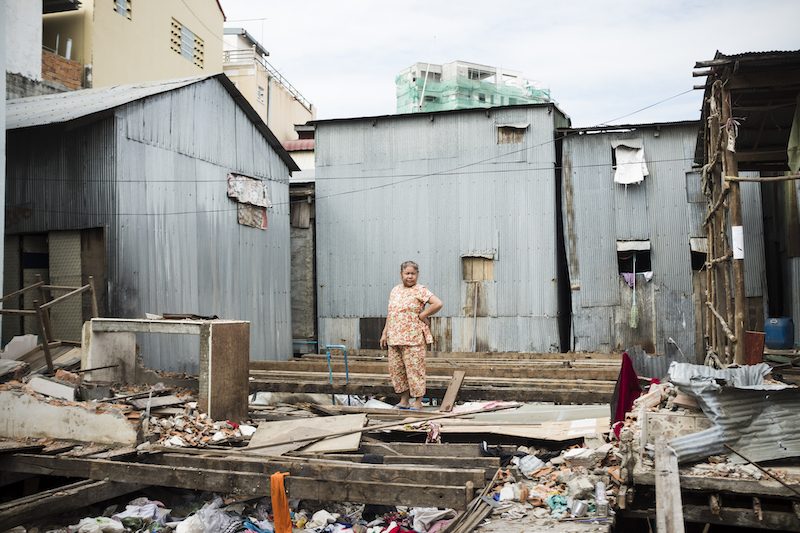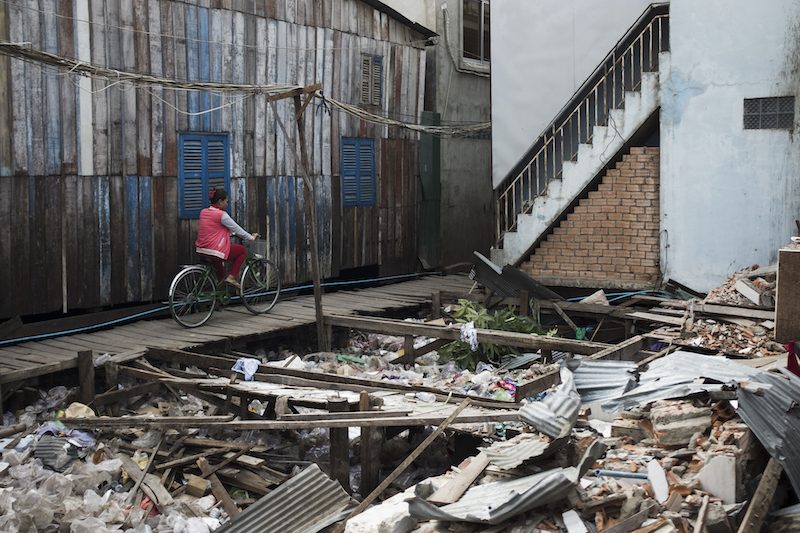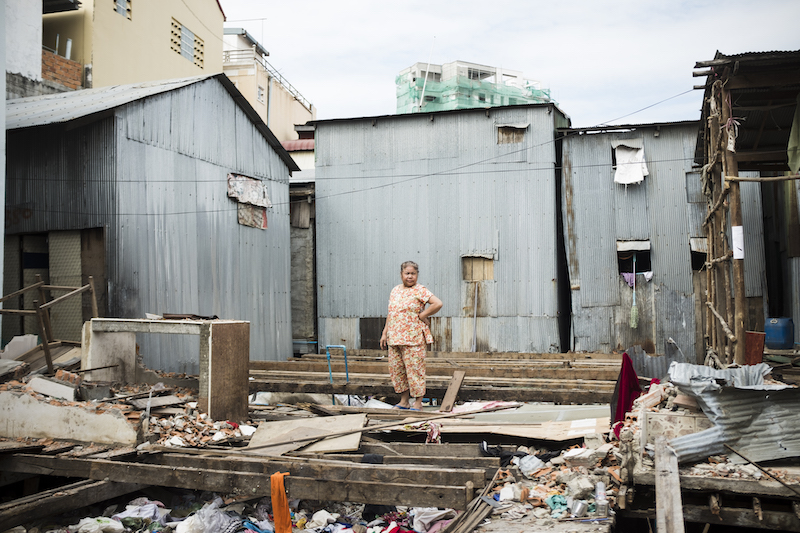When authorities announced a six-month campaign this year to stem a growing drug problem in the country, there was perhaps no more obvious target than Trapaing Chhouk village, a cluster of metal and wooden shacks built on platforms above a fetid pond in Phnom Penh.

Much of it only accessible via rickety planks of wood leading off alleyways, the place was widely known to be a 24-hour hub of drug taking and dealing, with most of the shacks housing addicts smoking and injecting crystal methamphetamine, some renting space by the hour.
“I can’t explain it unless you saw it with your own eyes,” said Saek Hengly, 52, who still lives on the trash-strewn slum—above a pit filled with rubbish and shallow water with wood walkways crisscrossing above—where the drug hovels were operating until recent weeks.
“There were many new people coming here all the time. This one, they always came to this one here,” he said, pointing to the remains of a shack less than a meter from his front porch.
After years of sporadic—and generally futile—crackdowns in Trapaing Chhouk, located in Sen Sok district’s Toek Thla commune, the village was this month made a focus of City Hall’s effort to rid the capital of its drug woes.
Officials moved fast.
Where lines of tin shacks stood at the start of the month now lies a wasteland. The narrow alleyways, which until recently were home to a steady traffic of addicts, were on Wednesday full of police inspecting the remaining shacks. Construction workers hammered down the rooms deemed to have been housing meth dealers.
So far, 69 of the 73 suspected drug dens have been knocked down, said City Hall spokesman Met Measpheakdey. According to Mut Sovann, the district’s chief of administration, 159 people had been arrested since the start of the month.
“We went to crack down, investigate, and check on illegal drug trafficking and using that took place in those rooms and houses,” Mr. Measpheakdey said, claiming that some of the rooms had been empty for months.

Dozens of buildings housing families that officials deemed not be involved in the drug trade avoided demolition. While expressing relief at the authorities’ efforts to rid the village of drugs, some of the remaining families are worried that their homes might come under the hammers next.
“I was scared before they knocked these down because there were so many gangsters here. There were many people coming to do drugs here,” Prak Savoeun said while cooking rice outside her house.
Despite living in the slum since 1992, Ms. Savoeun said she is now feeling anxious, with authorities remaining ambiguous about their plans for those not involved in the drug trade.
“Authorities said these would go first,” she said, pointing at the skeletal remains of drug dens opposite. “They said they would talk to us about our homes. If the authorities pay me some money then I’ll go and live somewhere else.”
“My neighbors are worried about this too,” she said, adding that she had “no idea” who actually owned the plot of land.
One of her neighbors, Lok Soeun, 40, runs a small grocery store from his house.
“I’m so happy that the authorities knocked down these houses, but I’m scared,” he said, explaining that officials had told him that his home would be safe, but he was unconvinced.
“I don’t trust the authorities. I’m worried they’ll order us to go too,” he said, adding that he didn’t have a land title.
Ownership of the land is as murky as the muddy water under the slum. Some residents claim to have bought their land decades ago but, like Mr. Soeun, have no documents proving it, while others simply pitched up and built a home as the slum sprawled.
Mr. Measpheakdey said law-abiding residents in the slum had nothing to fear.
“Brothers and sisters nearby or inside the area that have not been involved with drugs, they should not worry,” he said.
Another fear among some residents was that the raids were simply a short-term fix, and that drugs would soon swamp the village once again.
Mr. Measpheakdey admitted that keeping drugs out of Trapaing Chhouk would be a tall order.
“But even if it’s tough we will keep trying our best to eliminate drugs from here,” he said. “Our district authorities are keeping their eyes open, patrolling, and have set up officers there to scare them.”
David Harding, an independent consultant who has worked on drug abuse prevention programs in Cambodia for more than a decade, said that rounding up users and smashing down drug dens was not necessarily the solution the village needed.
“You need to ensure that other troubled elements are removed as well, like under employment, food security, water security, access to education. All of these things are troubling aspects of that environment,” he said.
“You can’t expect to remove one troubling aspect and expect the place to be shining new.”




